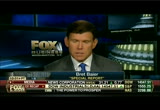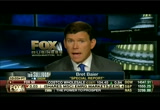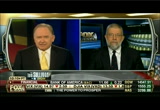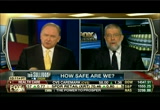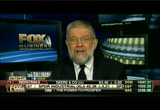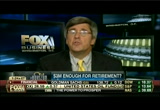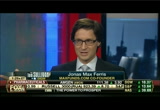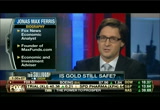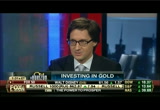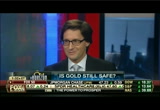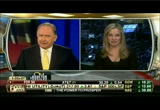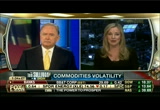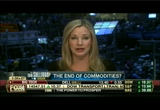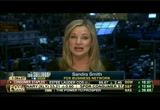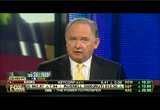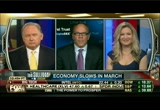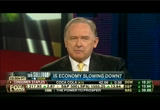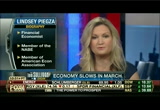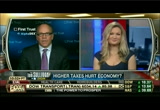tv Cavuto FOX Business April 21, 2013 1:00am-2:00am EDT
1:00 am
thanks for watching. [applause] ♪ "off camera." we thank you for being here, come back. >> thank you. >> thanks for being with us. good night from new rk. to say this has been a busy newsweek is an understatement. the bombings in boston, letters with ricin being mailed to officials, have forced us again to make decisions. choosing between our freedoms versus our security right here, right now. >> from the fox business network headquarters in new yook city, it's "the tom sullivan show." here's your host tom sullivan. >> thank you for joining us here. athe top of the stack the similarities to 9/11 are eerie. the week started with a terrorist attack in boston and then, instead of anthrax, letters with ricin arrived in washington. and on top of that, there were scares about suspicious packages
1:01 am
at various congressional offices and hallways. the emotional response is people want to be safe, but at what cost? does this mean additional security as we go about our lives? what freedoms will we give up? joining me is the host of "special report." brett, i caut part of your show this past week and one of the things that i was surprised at, you were talking to mike rogers, i believe it was. and this whole question about civil liberties, freedom, more ramping-up of security. and he made a comment to you if i heard it right that said something about, we always have trouble with civil libertarians. did i hear him right? >> basically, you know -- basically, tom, the question was, where is the line? where are americans now with being -- giving up freedoms in order to have more security? and his point was that americans are ready to move that line yet again after boston. and he said technology was the key. and he's on the homeland
1:02 am
security committee, mike rogers from alabama. i asked h saying that many civil libertarians have some problems with some of the things that are proposed and they want to do. put more cameras ever-place. some of the other security measures. and he said, and i'm paraphrasing here, well, civil libertarians have a problem with pretty much everything. i think that he is -- i think he was kind of joking, but not really. he came back to it and said, you know, i think the naysayers and civil libertarians are in the minority and mosamericans believe that they -- that we have to do more in the security realm. you know, there are others like senator rand paul and another -- kind of a growing minority, i will say a minority, but a growing population up on capitol hill who are concerned about where that line is with, you know, security and giving up
1:03 am
freedom. >> yeah. and that's the question i think a lot of people have too. and you're talking about the fact that more americans today are saying, okay, okay, i'll give up some of my liberties in return for more safety. but especially in washington and especially in the capital where this week has been with the ricin letters and with some bomb scares and suspicious packages, is it an emotional reaction that just ramps up when you have this sort of security issue? or is it a growing trend where congress is saying, we need to clamp down on liberties so that we have safety? >> you know, it's a great question. i think after 9/11, there was a long period of time as you know, there weren't really big incidents. there's obviously the ft. hood shooting which was a terrorist attack in the big picture. it wasn't classified as such at the beginning, but it was. but in the big picture for the public consciousness, there
1:04 am
wasn't make incidents until boston. here in washington, after 9/11, we've had these scares, suspicious packages. a lot of times, buildings wa ti evacuated. we're kind of used to it because security is very, very title. it's stepped up this week significantly. i will say that there is a sense that lawmakers are more gained after one of these incidents, and then it delves down a little bit. there's -- in the words of one lawmaker, a complacency that sets in after people get disengaged after an attack. >> yeah, but you also pointed out very clearly the fact that, if you go to washington, d.c., you go near the capitol, you go near the white house, you go near the supreme court, i mean, it has become an armed encampment in which washington and congress and the president live. that's not the way the rest of us live out in america.
1:05 am
so i wonder if they're in tune with americans. >> yeah, that's exactly right. and that was the purpose of our piece there was to show how much of a hard shell washington is. the hard target. and you can't do that every place. there are millions and millions of soft targets where we live our everyday lives. and that's the challenge. so many lawmakers are talking about technology and increased technology and smart cameras. and they don't think that that will infringe too much on americans' freedoms and liberties, you know. some feel that it still will. >> back to your wheelhouse, keeping track of the kids under the dome. with all of this going on,it throws -- it seems lke it throws the agenda out of whatever somebody's trying to get going in washington. whether it was the gun vote or immigration, a bill was starting to be introduced. seems like all of that has been pushed off of the table. >> well, you know, the gun vote
1:06 am
just went down in flames this week. the president angrily saying that, you know, he was so disappointed, he was ashamed, he said, of washington. and frankly, it didn't look like from the beginning they had the votes to make that happen. but because of boston and because of the attention that wa taken off of when the vote actually happened, the pressure did come off some of those lawmakers, i think, and they were able to vote perhaps differently than they would have if the spotlight was on them. i mean, it's speculation. but there are a number of votes that people are focusing on the republican votes, on a number of different channels. i looked at over the past few days. but the democrats, only 40 people voted for the assault weapons ban, the so-called assault weapons ban amendment. only 40. and prominent democrats voted against it, many of them and the toomey/mansion
1:07 am
amendment, the expanded background check. a number of democrats who are not up for re-election in 2014 voting against it. i think the gun bill was doomed from the beginning. immigration is going to have an interesting but bumpy road. and it will be a challenge, but most people believe that the boston attack will not take too much focus off of the push to try to get something across the finish line. >> all right. brett baier, always great to get your inside story. thank you so much for joining us. >> okay, tom. still to come this hour, the terror bombing in boston has once again raised anxiety about our nation's security versus our safety. how safe are americans right here on our own soil? should the government decide how much you're allowed to save for retirement? you're not going to believe what's hidden in president obama's budget proposal. and gold, what a wild ride
1:08 am
1:10 am
washington, new york, and major cities after the bombings at the boston marathon. the question is, have we as americans become complacent about our national security? how safe are we from terror attacks on our own soil? earlier this week i spoke with the former head of the cia's bin laden unit. where do you, on a scale of 1 to 100, 100% there's no way you can be 100% safe. are we 99% safe? are we 10% sa? what's your estimate? >> you know, i would say probably we're 50% or 60% on the safe side. i think there is a -- the growth, especially if we're
1:11 am
talking about the islamic world, of people who want to attack us here in the united states, has grown significaly. as has the animosity of parts of our muslim population here in the united states. we're not immune to what has gone on in france or spain or the uk. so i think that's a problem. but i also think we're at some risk here at home domestically simply because the country seems to be so angry at so many things. and this president too has i think put us at odds over race and class and ethnicity. so i think looking at the whole business, it is a very dangerous time for americans. >> you see -- as a risk analyst, you see a lot of risk because of all these diffent things. you told me on the radio show this past wee there was a difference between bin laden, who liked to do 9/11, big, lots of casualties.
1:12 am
and his successor who has a different view. >> yeah, ayman zawahiri who took over for bin laden is for doing places, if you can do it small, do it small, if you can do it big, so much the better. his experience as a commander of terrorist operations were a lot of ieds. not very many suicide bombings initially. and assassinations and that kind of low-level thing. and i think his view is, it's important to keep us nervous, to keep hurting us. and of course to keep having us react with extraordinarily expensive security measures, which i'm very sure that's what's going to follow out of what happened in boston. >> as far as this, again, these smaller ied type of attacks, are you expecting to see more? >> i think so, sir. i think -- this is -- one thing
1:13 am
we may have seen in boston is kind of a threshold crossed. in the late '90s, in the first part of this decade, this century, rather, the were a lot of efforts by muslim attackers who either came into the country or were citizens that were comical. people forgot to connect the fuse. people put a.m. instead of p.m. on the timer. and we kind of laughed at those things. but it's like any other profession. if you can call it that. there's a learning curve involved. these may not be very sophisticated tools, but they're certainly very effective tools. and they attack the hardest part of that marathon course where there was the most police, the most video, the most reporters, the most medical people. and it's a disturbing possibility, sir. >> all right. always good to get your input, thank you so much for being on. >> thank you kindly, sir. earlier this week, before
1:14 am
all the latest dramatic developments in the boston bombings, i spoke with international security expert with the mit security studies program, dr. jim walsh. have you done any studies as far as cost/benefit? because that's the other thing i'm concerned about, the ramping-up of security and the billions of dollars being spent. is it being spent with some benefit? >> yeah, it's a great question. i was in boston on 9/11 sitting in front of a camera like this talking about the challenges that day. and you know, i find myself years later in the same situation. and in that intervening time, we've spent a lot of money and a lot of time and effort trying to improve security and trying to train, prepare, implement rules that would make the country safer. and so i have two reactions to what you're saying. on the one hand it seems evident to me, as i've watched events unfold this week in boston, that
1:15 am
we have learned. we are better at this than we were before. that's not to blame folks on 9/11. that was a different scale attack. it's the first time we dealt with it. any time you deal with something the first time you're not going to be very good at it. but it's clear that we're way better at this, way better prepared, and training and investment has paid off. so i'd say, yes. but we spent a tremendous amount of money on this. and so i think there's definitely a debate to be had about, was all that money spent wisely? did we need to sd as much as we did? did we need to do as much as we did? did we go overboard? i think we've improved and as a bostonian i welcome that and see that playing out in front me. but it's also true that we may have gone -- we may have paid a lot for that and could have done it a better way and a more efficient way. >> even tsa this next thursday is going to alou the small knives again back on board. i don't like it but i get it. because what they want to do
1:16 am
spend their time looking for explosives. but we're just talking to michael shauer, he said bin lann liked to do big, big, grand terrorist acts. and now the new al qaeda likes the small ieds. do you agree? >> i do agree with that. and part of what's happened is since we've focused on al qaeda central, and i think we've done great damage to the central organization, it's split apart into smaller organizations and regional organizations in yemen, in syria, in mali, elsewhere in the maghreb. and you ow, if you have a smaller organization with less-experienced people, your capability's going to be less. and so -- and most of these cases they're focusing on a local conflict in syria, in yemen, what have you. but your organization, your organizational capacity, is going to be more limited. so i think therefore your ambitions become more limited. >> all right. dr. jim walsh, always good to get your ideas. thank you so much. >> thank you.
1:17 am
1:20 am
is it possible to save too much money for your retirement? obama administration thinks so. the president's budget proposal would automatically enroll woers in retirement accounts, that's good. but then set a limit, set a limit on how much that you can save. the proposal says $3 million is enough. because "some wealthy individuals are able to accumulate many millions of dollars in their accounts. substantially more than is needed to fund reasonable levels
1:21 am
of retirement savings." should the government decide how much money you're allowed to save for retirement? joining me now, "wall street journal" senior economic writer steve moore. and steve, you know, i don't have a life so i was reading the president's budget proposal. and there it was on page 18. he wants to cap the amount that we can save for retirement. i can't believe it. >> you know, tom, the budget proposal that came out by the president had, at you know, hundreds and hundreds of new proposals for funding this program and that program. you know, thousands of activities that are going to get certain levels of funding. by far the most controversial item in that budget was this prosal we're talking about. the capping of the money that you can put into 401(k) plans and the taxing of i.r.a.s and retirement plans. this has the nation abuzz. it has talk radio athe buzz. because people are worried, and they're not hearing by the way, tom, the $3 million threshold.
1:22 am
because wh americans are hearing is the government is now going to plunder people's lifetime retirement savings. i think it's a very dangerous idea. >> i do too. one analyst said, if you start when you come out of college, so you're in your early 20s, and you go to your 60s, that the average nurse's salary, i mean, $3 million sounds like a lot to a lot of people, kind of that class warfare thing. the average nurse's retirement account will add up to more than $3 million. >> no doubt about it. i talk to young people, the most important thing you can do when you're in your late teens and your 20s is start saving early. as you know, what is it that albert eye stein said in the most powerful force in the universe is compound interest. if you start saving early, putting money in ira, 401(k) plans, you can amass not just 3 but $5 million, $10 million.
1:23 am
is there something wrong with that? since when does the government say that's enough and we're going to take more, if you earn more and you amass more in your nest egg, we're going to take it away from you. we want a saving culture. we want a culture of thrift. we want people to save for retirement. now the government's saying, just don't save too much. >> i've always thought that. i always thought we were -- and government has always wanted us to save money so that they knew that we weren't going to be reliant upon them. but maybe there's another hidden message in there. this brings up also a smell of cyprus. it doesn't say, maybe you have more details on this, steve. >> good point. >> it did not say, if i have a $4 million retirement account, are they going to take my -- the excess over 3, like cyprus? >> right. i believe what the intention is to tax that excess. here's the problem with that, tom. the government made a deal with us five, 10, 25 years ago.
1:24 am
they said, look, if you put money into these accounts, after tax,,into an ira or a roth ira, for example, 401(k) plan, we will not tax that money when you retire. that was the deal. right? now the obama administration is saying, no, no, no. we're going to erase that daily, sorry, we're changing the rules on you. this is why i think everybody with a 401(k) plan and ira, not just people who have amassed millions of dollars, are very nervous about this. what message does this send to people, tom? it says, you know what? actually, you shouldn't save money for retirement because if you do, we're going to take it away from you. and by the way, if you look at social security, you know this, tom. the social security benefits for the average person is maybe $15,000 a year. you need private savings to sulement social security. that's the idea of the kind of two or three-legged pool here. and now we're taking that leg away. >> what is -- listen, i never
1:25 am
want to handicap washington. your town surprises me on a regular basis. does this have a prayer? >> no. no, not if -- in fact, i would bet to you, tom, i think this might happen sometime the next few weeks. if this came up for a vote in the united states senate, it would probably pass, you know -- it would probably be defeated 97-2. and the same thing in the house. people are really, really angry. i mean, i think the president has really stirred up a hornet's nest with this idea of starting to attack people's savings and people's wealth. i mean, a lot of americans think it's almost unamerican to do that. quite frankly, since you've already paid tax on the money already, to tax it again i think is kind of unamerican. >> it says something about what he's thinking. steve moore, thank you so much for joining us. >> thank you. still ahead, gold has always seemed like a stable investment, hasn't it? so what happened last week? and is it time now to buy or
1:26 am
1:29 am
have felt confident investing in gold. but after last week's unexpected price plunge is it still a safe investment? joining me is maxfunds.com co-founder, jonas, i know you're not a gold bug to say i mildly. gold bug squasher. >> this is the thing about gold is people are worried about inflation. and with the fed printing away, everybody thinks, okay, this is going to someday lead to inflation. so even though it hasn't yet, aren't you worried? >> 20 years ago when i worked at a gold fund, the first ad i came up with was, inflation ahead by gold. that was the early '90s. and it's still ahead. there's always this fear, it's one of investors' core fears, rampant hyperinflation. it seems like we set the standard with the federal reserve literally creating money and buying assets. however, it hasn't happened yet. it probably would have happened
1:30 am
by now if we were going to have it. and yet i keep on -- the fed is printing money because the economy s been desoying money since the real estate market crashed. it's an offsetting situation and it is reversible. if the private markets were creating welgts and thefederal reserve which is creating money, yeah, you'd probably have inflation. but there's proof in the balance of the cpi has been the flattest it's been -- >> somewhere, that this you're going through is going to meet. and that may spark it. but what you're saying is that gold is still way above an inflation curve? >> yeah, it's not thing -- look, i don't believe there's going to be rampant inflation. but iffyou do there is dozens of strategies that are not gold that will do a better job for an investor. especially a small individual investor who's not an institutionalized, billions of dollars to allocate -- >> like real estate? >> real estate remains the ultimate inflation hedge for the average person. you can buy at depressed prices,
1:31 am
boht a $200,000 house with a $150,000 fixed rate loan for 3%, thank you federal government for backing it. if there's hyperinflation wouldn't that home be worth $1 million in 20 or 30 years, wouldn't the loan still be 250? you made $750,000 out of thin air that you'll never make from gold. >> it's a place way to leverage as opposed to margin calls or something along that line. you say gold is a faith-based investment. >> definitely. first of all it's not an investment. the irs taxes it as a collectible, which they should. a '59 cadillac is a good investment, you sell it, it's a collectible. it's not an investment. it lacks concepts investments have. investments have coin to income or earnings. it could be future earnings. when you buy a dot com stock, it went to zero but it could have earned money down the road. bonds have interest rates. that's the best gold is is a commodity, commodities have no
1:32 am
income stream, you're playing poker as to what it's worth at any given time, it differs no more than the quitclaim market. you can't retire on it without selling pieces of it along the way to get money. so it has to have a greater fold down the road. now, will it over like 50 years match inflation? probably. but most commodities don't even do that well against inflation because we get better at money, money costs don't keep up with inflation. a lot of products aren't as expensive adjusting for inflation. it hasn't been a great inflation hedge. >> since you're not a gold investor, do you have some idea where the prices are going to be? do you have a range? >> i think it's going to end in the $500 range. that is so far below -- all the people that have recently gotten negative on wall street, i've been negative for a very long time, obviously. 1,200, 1,100, 1,300. it's going to $500 in my opinion. will it happen next year? could it go back to $2,000 on the way down? i don't know. but i do know it's a commody
1:33 am
and these mines are opening up all over the place and they'll keep pumping gold into the market at $700, $800, even though they will lose money per ounce, they're not going to shut down the mines. once you get that plus all the people that bought coins over the last years, dump it on the marketction you're going to find out how illiquid this market is. who knows what will happen if central banks did start selling it which i think tipped it over recently. >> all right. jonas, always good to get your opinion. thank you so much. to put it mildly, jonas max ferris is not a gold fan. joining me now is fox business network sandra smith. you literally grew up in the commodities market. this has been a pretty wild week for commodities and led by the headlines of gold. is this volatility going to stay? are we heading lower? are we heading higher? what do you make of this? >> from a trer's perspective you want the volatility to stay because that means more volume, that means more business.
1:34 am
so certainly volatility would be a good thing from a trader perspecti perspective. from an investor perspective, that volatility can scare a lot of folks. when it comes to the commodities world, the commodities market, you have to decide if you're in it for the short-term or long-term. if you're in it for the long-term, the population is growing. there's more mouths to feed. that's more grains that will be needed. more people are moving off of farms into cities. that means more homes will be built. more cell phos will be used. guess what, all of these things require commodities. these raw materials. so, you know, if you're an investor looking at the long-term, you're going to ignore the short-term volatility. the short-term politics, the short-term weather that causes blips in these rallies. you're going to look long-term and you're going to say that demand, simple economics show that there is going to be more demand for theseroducts globally, at least over the next 10 or 20 years. >> well, at the same time, there's some people that are looking long-term and they say, we've been in a long bull market
1:35 am
for commodities, but bull markets come to an end. what's the the buzz on the floor there? >> well, they call it the commodities super cycle. there's been a lot of the big investment banks have been writing recently because of gold's decline, because of oil coming off $100 a barrel, they've all been asking the question. are we coming to the end of this commodities super cycle that has lasted for years? well, you know, i'm in the camp of jpmorgan who says, look, this commodity super cycle at least has another decade in it. citigroup disagrees saying the super cycle is dead at this point. jpmorgan is looking at it from the perspective of, aside from maybe gold that trades basically on the u.s. dollar, we have these raw materials that are right now sitting near historic highs because of growing demand globally. if you look at the world economy right now, yes, we talk about china's growth this past week was a little bit weaker than expected. but tom, it's still growing. and that means that they're eating more hamburgers and that
1:36 am
means they're building more homes. so the long-term super cycle may not be over. if you take into consideration that we still have these emerging markets. >> but you've put an exception in there about gold. and as jonas was telling us, you know, it's a faith-based commodity. because all those other things are used somehow or have an income associated with them. gold doesn't. >> that's right. and that's why you have to separate gold. because you could even look at gold's partner, silver, which they tend to move with each other but not recently. silver has more industrial components. it's used in dentistry, it's used in some of our electronics, et cetera. so it has that industrial component. gold does not. so you do have to kind of take it separately and acknowledge the fact that gold is used as that alternative to the u.s. dollar. that safe haven in times of inflation. so gold is a good place to look if these commodity prices continue to go higher over the
1:37 am
next decade or so, people will be looking to hedge that inflation. where will they turn? to gold. again, it's all about timing, tom. if you're able to stay in it for the long haul, gold might be back in favor if we continue to see all these other commodities go up with the world's population. >> all right, sandra smith, always good to have your expertise on this, thank you, sandra. >> thanks, tom. coming up, some say more surveillance cameras would help keep americans safer. but are you willing to give up your privacy for national security? a new poll shows that americans care a lot more about the economy than they do about gun control. so why are guns getting all the attention in washington? the panel tackles that one next.
1:40 am
time to cross the ts and dot the is on the rest of the week's top stories. joining me now is fox network's laurie rothman, democratic strategist steve sigmund, and sherry jacobis. boston, after the bombing at the boston marathon, some were calling for more security cameras t keep our streets safe. is there aay to balance security with privacy? we talked about this on the radio show. got a call from ryan in san jose. he is our caller of the week. >> caller: i'm just amazed at the whole concept of how much money we spend on this so-called homeland security, and then here we have stuff like this happening. my wife said to me, you can't -- they can't be watching everything. well, that's what i understand they do, with the billions and maybe trillions of dollars they've spent on homeland security. and here we are. >> i couldn't agree with your caller more. i mean, i already feel like big brother is watching my every
1:41 am
move. add smartphones and cameras into the mix, it's ridiculous. how about better intell? how about better use of those funds homeland security has at its disposal to find these perpetrators before they act? >> steve, i mean, it's the cost/benefit decision. nobody likes to talk about that when it comes down to people's lives. >> yeah, i think there was a great piece by dennis lehane who said, we're not going to sacrifice our civil rights in boston and we're going to get right back up. look, there is a balance that's needed here. pete kink and barney frank have talked about, keep homeland security funded correctly, the need to utilize technology. these are 26-mile courses, you can't police every single step of every course, so you need to put good technology in place and you need to work together and there are investments that are needed and they are government investments to keep us safe. >> sherry, we'vespent a lot of money. do we need to spend more? >> i don't think it's a matter
1:42 am
of spending more. i think it's about doing the job correctly. we do know there's been photographs now of guys walking around with big backpacks. was somebody not on the ball, did somebody not see that, did somebody not look at the cameras? we need to be able to trust our government officials and institutions. american people are pretty smart and know what the elected officials know when they've gone too far. we can put up with a lott we're going to keep an eye on, this we might gripe some. but when you have a homeland security department stockpiling ammunition and not telling us why we don't trust them. we want them to do their jobs. i think it's important we keep an eye on them, that they know we're watching them, and that we're not just going to roll over and take and it have them invade our privacy. i think we can put up with a lot if we trust our government, and that's a big issue, i'm not sure we do. >> they're supposed to be afraid of us, we're not supposed to be afraid of them. >> exactly. >> we've got a new poll out that shows -- this is a gallup poll.
1:43 am
what do you think the most important thing facing this country is? the bottom of the list, 4% of americans think gun control is an important issue. the number one issue is the economy. followed right up by jobs. so why is washington spending so much time on guns? i know the president said this week, he was really mad, and he's right, 90% of the people are okay with background checks but that's different than saying, we want gun control. >> yeah, look. i think the important thing in that poll was the question was, what's the most important issue? gun control has never been the most important issue. that couldn't mean it's not an important issue. it doesn't mean congress shouldn't be able to walk and chew gum at the same time. there's a question right now whether they can do either, concentrate on the economy or an issue like this. when you have 90% of people wanting some commonsense solution like background checks and you can't even get that done? it is in fact as the president said it is in fact shameful and they ought to be doing something
1:44 am
about it. >> i saw one thing out of this. at least it's bipartisan. there were democrats that voepted against it, republicans that voted for it. so finally we have some bipartisanship. isn't everybody happy? >> look, i think what we're seeing now is that the american people are speaking and president obama doesn't like what they're saying. and that's why he's been acting like a petulant child since he lost the senate vote. i think he's surprised. i think he thought the bullying tactics and rather obscene marketing in my view, taking the parents of the children who died in newtown and flying them around on planes, giving them protection. i think that turned off a lot o people. the american pple know where they stand on this. again, they know where they're drawing the line. they don't trust this president, i'm sorry. he does nolike the answer. >> i cover economics and i think it's simple. i think people are concerned about their pocketbooks. we know this president is raising taxes and wants to continue raising taxes. we have an unemployment crisis in this country. i think a lot of people are
1:45 am
reading through the president saying, he's looking for an excuse to get riled up and earn money. >> the question is, are they working on jobs and the economy? it appears that's what people want them to do. corey rothman, steve sigmund, sherry jacobus, thank you all very much. >> thank you. coming up, what happened to the economy in the month of march? was it a temporary slump? or a warning of thin
1:48 am
1:49 am
westberry. lindsay, we've had these green shoots pop up in the first part of every year for four or five years. and then they go away. is this another sign of that? >> there's certainly no doubt january and february were quite robust. now we're starting to see weakness in march but i really think it's march that's indicative of what we're going to see as we move into the second quarter. this is very similar to what we saw last year. as we tur the corner into the new year we have this sense of optimism, businesses overly optimistic, overhiring, overproducing, which sets us up for a great first-quarter number. as we're seeing with disappointing retail sales numbers, consumers are still not able to support that type of robust output so we're setting ourself is up for a disappointing second quarter. >> brian, you agree? >> no, i don't, tom. i think it's what we call the plow horse economy. we've heard negative talk about the economy every time there's a dip or a zip or a zag in the
1:50 am
numbers, those are highly technical economic terms by the way. there's lots of bears out there that are ready to pounce and tell people that the economy is done, it's going to head back to another recession or it's going to slow down precipitously. and yet for almost four years now, we've seen about 2% growth. it's what we call the plow horse economy. it's not a race horse. and we just continue to grow. we've had 37 straight months of private sector job growth. the weakness in retail sales in march appears to us to be because of a -- believe it or not, an early easter and problems seasonay adjusting those data. >> wait, wait, but hold on. because the early easter and passover and everything else came into march, shouldn't that have booste retail sales? >> well, yeah, but remember we seasonally adjust the numbers. so we know that sales go up, for example, at christmas. we also know that sales go up
1:51 am
back to school. and at easter. so what the government does is they apply what's called a seasonal adjustment to the data which pulls it back down to make it comparable to other months. and every time in the last -- the last three times easter has fallen in march, what's happened is that retail sales have been reported as down. and then they recover in april, may, june. and that's what we expect. >> there's no doubt that there is some seasonal adjustment problems with the numbers. but i'd like to focus on what the consumer actually did last year compared to this year. it's a similar scenario. again, the consumer wasable to slough off rising ergy costs for the first three months as long as they could. then we saw consumption plummet in the second quarter. that's similar to what we're seeing now. the consumer is being forced to contend with this payroll tax increase. they were able to sidestep that in january and february. but finally we're starting to see that impact in march. and it's very likely it's going to carry through into the second quarter. and it's not because of early
1:52 am
easter that we saw that slump in march. >> brian, let me throw in the payroll tax. >> sure. >> also the other number was the increasing taxes for people in the higher income brackets. and -- was that the group that was out buying, was that the group that was supportina lot of the economy where the higher income crowd, and if they're getting dinged a little more on taxes, is that having an impact? >> we can't forget that there's some withholding impact. but there's no way that people could sidestep a tax increase in january and february and then all of a sudden be hit with it in march. i mean, i can make up stories about any kind of number or any kind of thing and people are so scared. i think we have pst-traumatic stress disorder about this economy. it goes back to 2008, 2009. people are so scared that something like that is going to come back, they're almost willing to believe anything that's negative. this economy has consistently
1:53 am
outperformed the pessimists for the last four years. i think it's going to continue to. in fact, this year, housing has now turned the corner. it's up -- housing sales and starts are up 20% 40% from a year ago. house prices in even the worst-hit markets are up -- >> i think the reason we've outpaced pessimists is the bar has been lowered. since when is 2% growth something to write home about? >> i'm not writing home about it, i'm calling it plow horse economy. >> some of us would like a horse that's a little more invigorated. >> yeah, we would. >> we're waiting for it. >> the way you get to that, cult the size of government. >> thank you both so much. appreciate it. your chance to win at comment roulette is coming up after the break.
1:56 am
time to spin the comment roulette wheel. every week we receive tons of messages on our facebook, twirt, e-mail, radio show comment line. we pick through them and play this part of the proam where your voice can be heard. we call it comment roulette. let's spin the wheel. a message via facebook. linda thinks even some high-profile liberals will object to putting the cap on retirement accounts. she writes, the one who really needs to be worried about the $3 million cap is michelle obama. that would only last her about one week. let's give the wheel another spin. we've got a message coming in via facebook. shelley can't believe politicians want to start flagging people who purchase some beauty products. i bought cover girl makeup at walgreens today, do i need to report that to washington? yes, congressman king from new york did say we need to find out who's buying beauty products.
1:57 am
remember there was a bomber that went to a beauty wholesale place and bought a big jar of something, i don't know what it was, that's what he was talking about. let's spin the real again. the radio show comment line, despite the tragic news coming out of boston, there were some heroes. >> that's the real person, the ones that run through the action to help their fellow man. >> it's so true. and one of the things that comes away from boston is the immediate response. of course there were a lot of police there but they ran to the scene, not away from the responserom the first responders was incredible. this caller thinks taking away a tax income status for churches is a great idea. >> the pastor will no longer be muzzled trying to preserve his tax-exempt status. he will call good, good, evidtly, evidently, and he will name names from the pulpit. >> hopefully they already do that but i get your point. i brought up that idea of taxing churches on my radio show. oh, man, did i get hammered on
1:58 am
that one. this caller thinks i'm being consistent -- doesn't thi i'm being consistent when it comes -pto the president and the stoc market. >> a lot of double talk i hear. because you're not giving obama credit for the high stock market but you sure wanted to give him credit for when it was low. >> i got a surprise for you, i'm not giving credit to the president for the stock market whether it's high or low. the president doesn't determine which way the stocks go. it has to do with earnings. the last time i checked the president doesn't run anything that makes earnings. get it? this caller wonders if he's the only one to notice this. >> did anybody else connect the dots? take our guns, then it makes stealing our money a hell of a lot easier. >> i think referring to the fact that this maximum that you can put in your retirement account. and what are they going to do, take the top part of it? this caller says, only one way to deal with guns. >> if you own a gun, protect yourself from somebody who has a
1:59 am
gun. but those people shouldn't have guns either. so nobody should have guns. >> well, you know, the only real gun control is if you take every gun in the country and confiscate it. and even then that won't stop gun violence, they'll get guns somehow. that's never going to happen so there really isn't a solution. that's why congress this week said no on all the rules around guns. thanks to everybody. thanks to everybody for contacting the show this week. keep your comments coming in. "the tom sullivan show." we're open for business 24/7. check out our facebook page. it's facebook.com, then there's a lot of tom sullivans but this address is tom sullivan show. follow me on twitte twitter @sullivanradio and all of the ways to contact us on my main web page, tomsullivan.com. tune into the radio show on fox news talk and many of your local radio stations around the country. or listen through our fox news radio app, it's
79 Views
IN COLLECTIONS
FOX Business Television Archive
Television Archive  Television Archive News Search Service
Television Archive News Search Service 
Uploaded by TV Archive on

 Live Music Archive
Live Music Archive Librivox Free Audio
Librivox Free Audio Metropolitan Museum
Metropolitan Museum Cleveland Museum of Art
Cleveland Museum of Art Internet Arcade
Internet Arcade Console Living Room
Console Living Room Books to Borrow
Books to Borrow Open Library
Open Library TV News
TV News Understanding 9/11
Understanding 9/11

